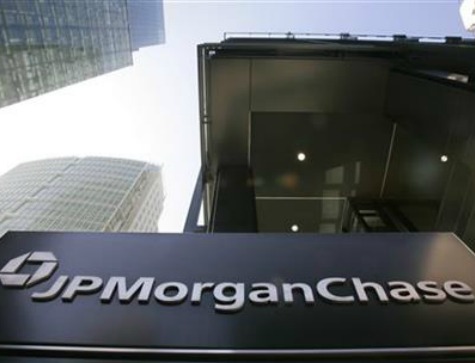New Yorker Magazine declares “The Winner of the Spending-Bill Vote: Jamie Dimon” after last week’s personal lobbying of Congress by the JPMorgan Chase CEO helped push through a $1.1 trillion spending bill that also eliminated restrictions on banks using taxpayer money to speculate with derivatives. But Breitbart has learned that a week before Dimon’s lobbying, JPMorgan and other U.S. banks knew they had flunked part of the Basel Banking Supervision’s regulatory assessment evaluation due to material non-compliance.
In September 2008, the Federal Reserve forced Lehman Brothers to file for bankruptcy rather than use taxpayer funds to bail out shareholders. But unbeknownst to the Fed, Lehman’s problems caused a $14.5 billion default at AIG insurance company that could have collapsed its $20 trillion derivatives portfolio. With AIG defaults threatening to wipe-out the banking system, U.S. taxpayers had to fund an $85 billion bailout of AIG.
The shock and awe of non-bank derivative defaults threatening FDIC insured bank accounts caused Congress to retaliate against banks by passing the Dodd-Frank Act. The “Lincoln Amendment” provision of the act set restrictions beginning in 2015 that taxpayer funds could only be used to backstop derivatives that hedged bank loan risks.
McKinsey & Co. estimated that although only 5% of banks’ derivative trading would be impacted, implementing the Lincoln Amendment would cost U.S. banks 35%, or $4.5 billion of the $13 billion in derivatives revenue they generated last year. JPMorgan with $70 trillion of the $280 trillion U.S. derivatives market clearly had the most to lose.
The American Bankers Association spent $6.7 million in lobbying last year leading the charge to terminate the Lincoln Amendment. But after Breitbart broke “Banks Get OK To Use Taxpayer Money for Derivative Speculation,” a firestorm of protest broke-out from conservatives led by Sen. Rand Paul (R-KY) and progressives led by Sen. Elizabeth Warren (D-MA) against the “Lincoln Amendment” in the spending bill.
The Washington Post reported that with the spending bill going down in flames, “The provision was so important to the profits” that JPMorgan Chase’s Chief Executive Jamie Dimon himself “telephoned individual lawmakers to urge them to vote for it.” It is not known yet how many votes Jamie Dimon turned, but late Thursday night the House of Representatives barely passed a spending package with a provision terminating the Lincoln Amendment by a vote of 219-206.
The New Yorker lauded Dimon as the “King of Wall Street” for confirming “all the money they spend on lobbying and campaign donations in Washington doesn’t go to waste.”
But on December 5, 2014, six days before Lincoln Amendment was terminated, the Basel III Committee on Banking Supervision published its latest Regulatory Consistency Assessment for the United States of America. The report found that out of the 13 components of US risk-based-capital standards: 7 components were “compliant” and shown in green; 4 components were “largely compliant” shown in cautionary yellow; and 2 components were “materially non-compliant” and red for danger.
U.S. banks were found to be “materially non-compliant” with the Basel III standards for 1) “securitization framework” and 2) “standardized approach for market risk.”
The Assessment report includes a letter from U.S. banks acknowledging they knew they failed to comply, but trying to minimize the importance of the issues. But given that derivatives rely on underlying securitizations and are subject to counter-party risk, both of these issues create significant hazards for banks trading in speculative derivatives.
The Basel III Committee on Banking Supervision gave an overall score to the United States in cautionary Yellow for being “largely compliant.” But the international standards and rules organization did its evaluation of the United States Banks based on the expected full implementation of Dodd-Frank Act, including the Lincoln Amendment.
Eliminating the Lincoln Amendment allows banks to pay bonuses from profits and socialize losses onto taxpayers. Banks had every right to lobby Congress in hopes of retaining $4.5 billion of revenue. But the banks and Mr. Dimon had a duty to disclose to each and every Representative and Senator they lobbied that the risk-taking of U.S. banks was rated cautionary yellow and they had flunked a couple of issues in red for danger.
If you are interested in financial issues and crony capitalism, please click on Banks Get OK to use Taxpayer Money for Derivative Speculation

COMMENTS
Please let us know if you're having issues with commenting.